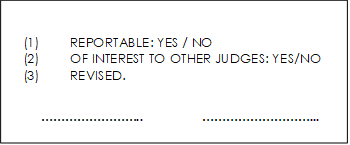
IN THE HIGH COURT OF SOUTH AFRICA
GAUTENG DIVISION, JOHANNESBURG
CASE: A25/2023

In the matter between:
MASANGO, FRANSISCO | Appellant |
and | |
THE STATE | Respondent |
JUDGMENT
VAN DER WESTHUIZEN AJ:
INTRODUCTION:
[1] The Appellant appeared in the Regional Court, Protea on 8 March 2017 on a count of murder read with the provisions of section 51 of the Criminal Law Amendment Act, Act 105 of 1997.
[2] The particulars of the charge are as follows: “In that upon or about the between 30th and 31st December 2015 and at or near Braam Fischer in the Regional Division of Gauteng, the accused did unlawfully and intentionally kill Nonkululeko Ngubeni, a 19 year old female person, by burning her.”
.
THE TRIAL:
[3] The Appellant was legally represented and pleaded guilty to the charge. The provisions of section 51(1) of Act 105 of 1997 were explained to him - that he acted with a common intent with accused 2 and that it was a pre-meditated murder.
[4] Mr Radebe, who appeared on behalf of Appellant, read the section 112(2) statement of the Criminal Procedure Act, Act 51 of 1977, into the record. I am not going to repeat the whole statement in this judgment but will refer to relevant sections of it.
[5] In his plea explanation he admitted inter alia, the following:
5.1 “While I was there, I did unlawfully and intentionally kill Nonpumelelo Ngobene a 19 year old female person, by holding her hostage, while she was being throttled by a co-accused.”
5.2 “We then went back inside where my co-accused proceeded to strangle the deceased, and instructed me to tie her up and I did.”
5.3 “I remained with the deceased; she was very much alive at this point.”
5.4 “When I went back inside, the deceased was lying on her back and her body was motionless. My co-accused then went to the landlord to borrow a dustbin, we then loaded the deceased, and went to dump her in an open veld, identified by my co-accused. I confirm therefore that I am guilty of the crime of murder, and I know that at all material times my actions were wrongful, unlawful and punishable by law.”
[6] Before judgment the State handed in the post mortem report as well as a photo album of the body of the deceased and the scene where it was found.
[7] In a short judgment the court found the Appellant guilty of murder.
[8] The defence addressed the court in mitigation of sentence and before the State addressed the court, it called Doctor Funeka Ngoweni, the pathologist who conducted the post-mortem on the deceased, as a witness. The crux of her evidence was her response to a question asked by the court:
“COURT: So in other words your findings are that at the time when the deceased was set alight, she was still alive?
DR NGOWENI: Yes, your worship.”
[9] Before imposing the sentence, the learned Magistrate took the following into consideration:
1. That the Appellant is 21 years of age and not married.
2. That he has no dependents.
3. That he was employed and earned R100.00 per day.
4. That he is a first offender.
5. That he was in custody from 5 January 2016.
6. That the court was told that Appellant was remorseful.
7. That it was argued that he was to a large extent influenced by his girlfriend (the co-accused).
[10] The court also took into consideration the aggravating circumstances of the offence and the interests of society. He referred to factors to be taken into account to establish whether there were substantial and compelling reasons to deviate from the prescribed minimum sentence. After giving due consideration to all the relevant factors that he referred to, he was of the view that the aggravating factors far outweigh the mitigating factors. The Appellant was sentenced to life imprisonment.
[11] It is not clear from the record when and which court granted the Appellant leave to appeal the sentence that was imposed by the learned Magistrate.
DISCUSSION:
[12] During the preparation and perusal of the record of the appeal, it was discovered that there is a discrepancy between the allegations in the charge sheet and the section 112(2) statement, handed in, after his plea of guilty.
[13] According to the charge sheet – see par [2] supra “…., the accused did unlawfully and intentionally kill Nonkululeko Ngubeni, a 19 year old female person by burning her.”
[14] In his plea explanation the Appellant never admitted that he had anything to do with the burning of the deceased. All that he admitted to was that he was present whilst his co-accused strangled the deceased, that he “tied her up” and that they placed the deceased in a dustbin and that they dumped her in an open veld.
[15] He never admitted that he was involved in the setting alight or burning of the body of the deceased. Nor did he admit that he strangled her.
[16] Section 112(2) of the Criminal Procedure Act, Act 51 of 1977 reads as follows:
“If an accused or his legal advisor hands a written statement, by the accused into court, in which the accused sets out the facts which he admits and on which he has pleaded guilty, the court may, in lieu of questioning the accused under subsection (1)(b), convict the accused on the strength of such statement and sentence him as provided in the said subsection if the court is satisfied that the accused is guilty of the offence to which he has pleaded guilty: Provided that the court may in its discretion put any question to the accused in order to clarify any matter raised in the statement.”
[17] It is the responsibility of the presiding officer to be satisfied that the accused admits all the allegations contained in the charge sheet and that he is indeed guilty of the offence to which a guilty plea has been tendered.
[18] We are of the view that the learned Magistrate erred in finding that the accused admitted all the allegations against him as is set out in the charge sheet because he did not admit to the burning of the deceased. The conviction on the count of murder can therefore not stand.
[19] The appeal by the Appellant was against the sentence that was imposed. We will not deal with the appeal on sentence as we are of the view that the conviction is not in order and should be set aside.
[20] This does not mean that the Appellant walks away scot-free after committing such a heinous crime. We are of the view that the trial was not irregular. Nor did the Appellant not have a fair trial. It is in the interest of justice that the error committed by the Magistrate be rectified. In the circumstances, I propose the following order:
[21] ORDER:
1. The conviction on the count of murder is set aside.
2. The matter is remitted to the Regional Court, Protea.
3. The case should commence de novo before another Magistrate.
______________________________________
FJ VAN DER WESTHUIZEN
ACTING JUDGE OF THE HIGH COURT
JOHANNESBURG
I agree, and it is so ordered.
______________________________________
W A KARAM
ACTING JUDGE OF THE HIGH COURT
JOHANNESBURG
Date :
Of hearing: 18 March 2024
Of judgment: 07 June 2024
Appearances:
For the appellants: MP Milubi
Instructed by Legal Aid South Africa
For the State: Adv. PT Mpekana
Office of the Director of Public Prosecution, Johannesburg
7
